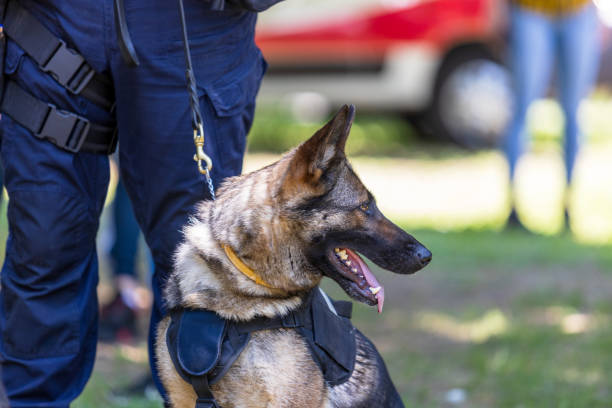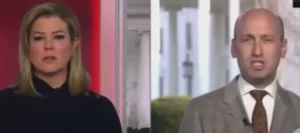A Heartbreaking Farewell Becomes an Extraordinary Vindication
The carved mahogany walls of Judge Harrison’s courtroom had witnessed countless moments of triumph and tragedy, but nothing quite like what unfolded on that fateful Tuesday morning. The atmosphere was thick with tension as family members, colleagues, and media representatives filled every available seat, all waiting to witness the final chapter in what had become the most controversial corruption case in the city’s recent history.
Detective Alex Miller stood before the bench, his once-commanding presence diminished by months of investigation, public scrutiny, and the weight of accusations that had systematically destroyed everything he held dear. His police uniform had been replaced by a modest gray suit that seemed to emphasize his fall from grace, while his weathered hands trembled slightly as he awaited the verdict that would determine his fate.
The charges were devastating: corruption, abuse of power, evidence tampering, and conspiracy to defraud the police pension fund. Each accusation struck at the heart of his fifteen-year career in law enforcement, a career that had been built on integrity, dedication, and an unwavering commitment to serving his community with honor and distinction.
A Distinguished Career Destroyed
Alex Miller’s journey to this devastating moment had begun with the highest aspirations and deepest commitment to public service. Graduating top of his class from the police academy, he had quickly established himself as an exceptional officer whose dedication to duty and natural investigative abilities set him apart from his peers.
His early years on the force had been marked by numerous commendations, successful drug busts, and a growing reputation as someone who could handle the department’s most challenging cases with professionalism and integrity. Colleagues respected his work ethic, while community leaders praised his commitment to building positive relationships between law enforcement and the neighborhoods he served.
The partnership that would define his career began when he was selected for the elite K-9 unit after demonstrating exceptional skills in handling police dogs during training exercises. Rex, a two-year-old German Shepherd with remarkable intelligence and unwavering loyalty, had been assigned as his partner in what would become one of the most successful law enforcement teams in the department’s history.
Together, Alex and Rex had achieved extraordinary results in drug interdiction, suspect apprehension, and evidence recovery. Their success rate in narcotics cases was unmatched, with Rex’s exceptional ability to detect illegal substances leading to dozens of major arrests and the seizure of millions of dollars worth of contraband. They had been featured in departmental newsletters, recognized at community events, and even profiled in a local television documentary about effective police work.
The bond between Alex and Rex transcended their professional partnership, developing into the kind of deep, mutual devotion that could only exist between a dedicated handler and his loyal canine companion. Rex lived with Alex and his family, sharing their home and becoming an integral part of their daily lives. The dog’s presence brought joy and protection to Alex’s household, while Alex provided the leadership, training, and affection that allowed Rex to reach his full potential as a police dog.
The Investigation That Shattered Lives
The corruption investigation that ultimately led to Alex’s downfall had begun with anonymous allegations suggesting that evidence from several high-profile drug cases had been compromised or had mysteriously disappeared from secure storage facilities. Internal Affairs investigators had launched what appeared to be a comprehensive examination of procedures and protocols within the narcotics division, focusing on officers who had access to the evidence in question.
The investigation had quickly centered on Alex when financial auditors discovered bank deposits that exceeded his official salary by significant amounts. Phone records indicated contact with individuals who were later identified as having criminal connections, while surveillance footage placed him in locations where suspicious meetings had allegedly occurred. The evidence appeared overwhelming, suggesting a pattern of corrupt behavior that had developed gradually over several years.
Alex’s explanations for the financial irregularities had been dismissed as fabricated excuses designed to conceal his illegal activities. His claims that the extra income came from legitimate security consulting work, careful savings, and a small inheritance from his deceased grandmother were characterized by investigators as convenient lies that couldn’t be adequately documented. His contacts with individuals who later proved to have criminal connections were portrayed as evidence of conspiracy rather than coincidental encounters or legitimate police business.
Throughout the investigation, Alex had maintained his innocence with unwavering determination, even as his reputation crumbled and longtime colleagues began treating him with suspicion and outright hostility. Friends who had once trusted him implicitly started avoiding his company, while family members questioned whether they had ever truly known the man they had admired and respected for so many years.
The most painful aspect of his ordeal had been the forced separation from Rex. Department policy required that K-9 partners be reassigned when their handlers faced serious criminal charges, and Rex had been temporarily placed with another officer while the investigation continued. This separation had been devastating for both partners, as Rex displayed clear signs of depression and confusion at the sudden disruption of his routine and living arrangements.
The Trial That Captivated the City
The criminal trial had become a media sensation, with local news outlets providing extensive coverage of every development in what reporters dubbed “The Case of the Corrupt Cop and His Missing Evidence.” Prosecutors had presented what seemed like an airtight case, supported by financial records, communications logs, witness testimony, and circumstantial evidence that painted Alex as an officer who had gradually succumbed to the temptations of easy money and criminal associations.
The prosecution’s most compelling witness had been Sergeant Oliver’s testimony had been particularly damaging because of his sterling reputation within the department as an officer of unquestionable integrity and moral character. His twenty-three year career had been exemplary, marked by numerous commendations for bravery, leadership positions in various units, and a spotless record that demonstrated unwavering commitment to upholding the highest standards of police work. When such a respected figure testified against a former friend and colleague, the impact on both judge and jury had been profound and seemingly insurmountable.
Oliver had testified with apparent reluctance and visible emotion, describing how he had gradually noticed changes in Alex’s behavior and lifestyle that had raised serious concerns about his integrity. He spoke of expensive purchases that seemed inconsistent with a police officer’s salary, secretive phone calls that ended abruptly when colleagues approached, and a growing pattern of evasiveness about his activities outside of work.
The defense team, led by experienced criminal attorney Maria Rodriguez, had fought valiantly to create reasonable doubt about the prosecution’s case. They had questioned the chain of custody for key evidence, highlighted inconsistencies in witness testimony, and presented alternative explanations for the suspicious financial activity that had formed the cornerstone of the corruption charges.
Character witnesses had testified eloquently about Alex’s integrity, dedication, and commitment to justice throughout his career. Fellow officers described his professionalism, while community leaders spoke of his positive impact on neighborhood safety and police-community relations. However, their testimony seemed insufficient against the weight of financial records, communication logs, and Oliver’s compelling insider account of suspicious behavior.
The defense had also attempted to highlight the lack of direct evidence connecting Alex to any specific criminal acts. While the prosecution had demonstrated financial irregularities and suspicious associations, they had struggled to prove that Alex had actually committed the corrupt acts alleged in the charges. The case relied heavily on circumstantial evidence and inference, leading the defense to argue that the prosecution had failed to meet the burden of proof required for criminal conviction.
The Community Impact
The Alex Miller case had divided the law enforcement community and sparked intense public debate about police accountability and the presumption of innocence. Many officers who knew Alex personally found it difficult to believe that someone with his reputation for integrity could have engaged in the systematic corruption alleged by prosecutors. They pointed to his exemplary service record, his dedication to his K-9 partner, and his positive relationships within the community as evidence of his fundamental character.
However, others argued that the evidence was too comprehensive and convincing to dismiss, suggesting that even the most trusted officers could potentially succumb to the temptations and pressures that led to corruption. The case had become a symbol of broader concerns about police accountability and the need for robust oversight mechanisms to prevent and detect misconduct within law enforcement agencies.
Community activists had seized upon the case as evidence of systemic problems within the police department, calling for increased transparency, civilian oversight, and reforms to prevent future corruption scandals. They organized protests and public forums, demanding accountability not just from Alex Miller but from the entire law enforcement establishment that had allegedly enabled his criminal behavior.
Meanwhile, police union representatives had rallied to Alex’s defense, arguing that he was being scapegoated for broader departmental failures and that the evidence against him was largely circumstantial. They contended that the prosecution was motivated by political pressure to secure a high-profile conviction rather than genuine concern for justice and accountability.
The media coverage had been extensive and often sensationalized, with competing narratives about Alex’s guilt or innocence dominating local news cycles for months. Some outlets portrayed him as a corrupt officer who had betrayed public trust for personal gain, while others suggested he might be the victim of an elaborate frame-up designed to conceal more extensive corruption within the department.
The Verdict That Crushed Dreams
Judge Patricia Harrison’s voice had carried the full weight of judicial authority as she prepared to deliver the verdict that would determine Alex’s future. The courtroom had been packed beyond capacity, with overflow crowds gathered in the courthouse lobby and outside on the front steps, all waiting to learn the outcome of a trial that had captivated the entire city.
“Ladies and gentlemen of the jury,” Judge Harrison had announced, “please rise for the reading of your verdict in the case of the State versus Alexander James Miller.”
The tension in the courtroom had been palpable as the jury foreman had stood and prepared to deliver the decision that would either vindicate Alex’s claims of innocence or confirm the prosecution’s allegations of systematic corruption. Family members had held their breath, media representatives had readied their cameras, and fellow police officers had waited to learn the fate of their former colleague.
“We, the jury, find the defendant Alexander James Miller guilty on all counts,” the foreman had declared, his words echoing through the silent courtroom like thunder. “Guilty of corruption in office, guilty of abuse of power, guilty of evidence tampering, and guilty of conspiracy to defraud the police pension fund.”
The words had struck Alex like physical blows, each guilty verdict feeling like another devastating confirmation that his life as he had known it was over. The sentencing guidelines suggested he would face significant prison time, the permanent loss of his law enforcement career, forfeiture of his pension and benefits, and the complete destruction of his reputation and standing in the community.
As Judge Harrison had prepared to proceed with scheduling the sentencing hearing, Alex had made an unprecedented request that surprised everyone present in the courtroom. His voice, barely audible above the courtroom’s stunned silence, had carried a desperate plea that touched even the most hardened observers.
“Your Honor,” Alex had whispered, his voice cracking with emotion and exhaustion, “before you sentence me to prison, I have one final request that I hope this court will consider. I know I have forfeited any right to ask for special consideration, but I’m requesting permission to say goodbye to my K-9 partner, Rex. He’s been my loyal companion for over a decade, and he’s literally all I have left in this world. My family has disowned me, my friends have abandoned me, and my career is finished. Rex is the only relationship that has survived this ordeal, and I’m asking for the opportunity to say farewell before I begin serving my sentence.”
An Unprecedented Courtroom Decision
A collective murmur had swept through the packed courtroom as spectators absorbed this highly unusual request. Judge Harrison had paused thoughtfully, clearly weighing the appropriateness and legal implications of allowing a police dog into her courtroom during official judicial proceedings. The prosecutor had looked uncertain about how to respond, while the defense attorney had nodded encouragingly, recognizing the profound humanity underlying her client’s desperate plea.
After several minutes of quiet consultation with court officials, Judge Harrison had rendered a decision that demonstrated both compassion and recognition of the unique bond between law enforcement officers and their K-9 partners. “Given the defendant’s exemplary service record prior to these charges and the extraordinary circumstances of this case, this court will allow the defendant a brief farewell with his former K-9 partner, provided that appropriate security measures are maintained and the meeting remains brief and supervised.”
The courtroom had waited in suspended animation as arrangements were made to transport Rex from the police department’s K-9 facility to the courthouse. During this tense interlude, Alex had remained standing at the defendant’s table, his mind filled with memories of his partnership with Rex: their first meeting as rookie cop and young dog, their countless hours of training, their successful investigations, and the unwavering loyalty they had shared through both triumph and adversity.
When the courtroom doors had finally opened, Rex had entered with the dignity and purposeful bearing that had characterized his entire distinguished career in law enforcement. Now eight years old and at the peak of his professional abilities, the German Shepherd moved with the confidence and alertness of a dog who understood his role and took pride in his service to the community.
Rex’s intelligent brown eyes had immediately scanned the unfamiliar courtroom environment, taking in the formal atmosphere, the crowd of strangers, and the tension that permeated the space. His highly trained senses had processed multiple stimuli simultaneously while his professional instincts remained alert for any signs of danger or unusual activity.
The Emotional Reunion
The moment Alex had seen his beloved partner enter the courtroom, his carefully maintained composure had finally collapsed completely. This proud police detective, who had endured months of investigation, prosecution, and public humiliation with stoic dignity, had immediately dropped to his knees with arms outstretched, calling Rex’s name with a voice filled with desperate love and overwhelming grief.
Rex had responded instantly to his handler’s call, his rigorous professional training momentarily forgotten in the pure joy of reuniting with the human he loved most in the world. The dog had bounded across the marble floor of the courtroom, his excited whining echoing off the high ceiling as he reached Alex and launched himself into the embrace they had both been denied for so many agonizing months.
The emotional intensity of their reunion had affected everyone present, including veteran court officers who had witnessed countless dramatic moments throughout their lengthy careers. Hardened prosecutors found themselves wiping away tears, while defense attorneys struggled to maintain professional composure in the face of such raw human emotion.
Alex had buried his face in Rex’s thick, familiar fur, his tears flowing freely as he whispered heartfelt apologies and expressions of love to the only being in his life who had never doubted his character or questioned his innocence. “Forgive me, Rex,” he had sobbed, his voice muffled by his partner’s coat. “I’m so desperately sorry I failed you. I’m sorry I couldn’t prove my innocence and clear my name. I’m sorry I let you down after everything we’ve accomplished together over all these years.”
Rex had responded to his partner’s evident distress with the same instinctive loyalty and protective devotion that had defined their entire relationship. The dog had pressed close to Alex, offering comfort and reassurance in the wordless way that only a beloved animal companion could provide. His presence seemed to calm Alex’s anguish while simultaneously expressing his own confusion and sadness at their prolonged separation.
For several precious minutes, the crowded courtroom had remained respectfully silent, allowing this final goodbye between partners who had shared so much together: dangerous pursuits, successful investigations, community service, and an unbreakable bond forged through years of mutual trust and dependence.
The Mysterious Behavioral Change
However, Rex’s behavior had suddenly shifted in a way that surprised and concerned everyone present, including Alex himself. Without warning, the dog had pulled away from his emotional partner and begun displaying the focused, alert posture that every experienced K-9 handler immediately recognized as indicating the detection of something significant requiring immediate investigation.
His ears had snapped to attention, his body had tensed into the classic scanning position, and he had begun the systematic environmental assessment behavior that signaled his highly trained senses had identified something unusual that demanded professional attention. This transformation from emotional reunion to active investigation had been so abrupt and unexpected that it caught even Alex off guard.
Rex’s sudden behavioral change had created a ripple of confusion and growing tension throughout the courtroom. Spectators had begun whispering among themselves, wondering what could have triggered such a dramatic shift in the dog’s demeanor. Court officers had moved to more alert positions, while legal professionals had exchanged uncertain glances as they tried to understand what was happening.
Without any apparent external command or stimulus, Rex had turned away from Alex and begun moving purposefully across the courtroom toward the section where various police officers, witnesses, and court personnel were seated. His gait had changed from the enthusiastic bound of reunion to the measured, deliberate pace of a working dog who had identified a specific target requiring investigation.
The assembled crowd had watched in growing bewilderment as Rex had approached the seating area occupied by law enforcement officials who had attended the trial in various capacities. His behavior had become increasingly focused as he moved closer to this section, his professional training clearly activated by some stimulus that only his enhanced canine senses could detect.
The Confrontation That Changed Everything
Rex had stopped directly in front of Sergeant Oliver Hartwell, who had been seated among other police officers in a section reserved for law enforcement personnel attending the proceedings. Oliver, who had appeared relaxed and satisfied with the trial’s outcome throughout the morning, had suddenly begun displaying obvious signs of nervousness and discomfort as the police dog focused his complete attention on him.
The change in Oliver’s demeanor had been immediately noticeable to everyone in the courtroom. His previously confident posture had become defensive, his face had flushed with apparent anxiety, and his hands had begun trembling slightly as Rex positioned himself directly in front of his chair. The contrast between his earlier calm confidence and his current obvious distress had not gone unnoticed by the experienced law enforcement officers present.
Rex had begun emitting a low, menacing growl that resonated from deep within his chest, a sound that every police officer in the room immediately recognized as a warning signal indicating the detection of either a threat or evidence of criminal activity. This was not the playful growl of an excited dog, but the professional alert of a highly trained law enforcement animal who had identified something requiring immediate human attention.
The courtroom had fallen into absolute silence as everyone present absorbed the implications of Rex’s behavior. Judge Harrison had leaned forward in her chair, her judicial experience telling her that something extraordinary was occurring that could significantly impact the proceedings. The prosecutor had risen from her seat, her legal instincts recognizing that the dog’s behavior might be indicating the presence of evidence or contraband.
Oliver had attempted to dismiss Rex’s aggressive behavior, stepping backward from his chair and calling for someone to control what he characterized as an agitated and potentially dangerous animal. “Get that dog away from me immediately,” he had demanded, his voice carrying an edge of panic that seemed disproportionate to the situation. “This is completely inappropriate courtroom behavior, and someone needs to restrain that animal before it becomes violent.”
However, Rex had continued his focused investigation with the same precision and determination that had made him legendary within the local law enforcement community. Rising onto his hind legs in the classic evidence-detection pose that had successfully located contraband in hundreds of cases throughout his distinguished career, he had pressed his nose directly against Oliver’s uniform breast pocket with unmistakable intent.
The Discovery That Shattered Lies
The prosecutor, District Attorney Sarah Chen, had immediately recognized the significance of Rex’s behavior based on her extensive experience with K-9 testimony and evidence detection procedures. Instead of having the dog removed from the courtroom as Oliver had demanded, she had made a crucial decision that would ultimately transform the entire case and expose the truth that had remained hidden for so long.
“Your Honor,” DA Chen had announced, rising from her position at the prosecution table, “I believe this police dog may have detected evidence that could be relevant to these proceedings. Given his training and proven track record in evidence detection, I request permission to have his alert investigated according to standard law enforcement protocols.”
Judge Harrison had immediately grasped the legal implications of the situation, recognizing that Rex’s behavior constituted probable cause for a search under established precedents regarding police dog alerts. “The court will allow an investigation of the dog’s alert,” she had ruled, signaling for court officers to approach and examine whatever had triggered Rex’s professional response.
Oliver’s protests and increasingly desperate attempts to avoid the search had only heightened suspicions among the law enforcement professionals present, all of whom recognized evasive behavior when they observed it. His earlier confidence had completely evaporated, replaced by obvious fear and growing desperation as the situation spiraled beyond his control.
The court officer who approached Oliver had done so with professional courtesy but firm authority, requesting permission to examine the contents of the uniform pocket that had attracted Rex’s undivided attention. When Oliver had attempted to refuse, claiming harassment and improper procedure, Judge Harrison had ruled that the dog’s alert constituted sufficient probable cause to warrant an immediate search.
The examination of Oliver’s breast pocket had revealed a small electronic device that had not been declared during the mandatory security screening required for all individuals entering the courthouse. The device, identified as a high-capacity flash drive, had been immediately secured as potential evidence and brought to Judge Harrison for examination and determination of its relevance to the proceedings.
The Evidence That Vindicated Truth
The courtroom had maintained absolute silence as technical personnel had connected the mysterious flash drive to a laptop computer and begun examining its digital contents. What they discovered had shocked everyone present and completely overturned the narrative that had led to Alex’s conviction, revealing a conspiracy so elaborate and systematic that its scope initially seemed almost incomprehensible.
The first digital file had contained high-definition video footage showing Oliver Hartwell in what appeared to be his private office, counting large stacks of cash while speaking on a cellular telephone. The audio quality had been sufficient to capture his entire conversation, which included explicit discussions of evidence tampering, witness intimidation, and detailed plans to frame innocent officers for crimes they had never committed.
“The Miller situation is proceeding exactly according to plan,” Oliver’s voice could be clearly heard saying during one recorded conversation. “We’ve planted enough financial evidence to make him look guilty, and his reputation for integrity will actually work against him. People will think he’s too arrogant to admit guilt, so his claims of innocence will sound like denial and desperation.”
Additional digital files had contained forged documents, altered financial records, and comprehensive communication logs that demonstrated Oliver’s central role in a sophisticated corruption scheme that had operated undetected within the police department for several years. The evidence revealed systematic theft of seized drug money, manipulation of evidence in criminal cases, and the deliberate framing of honest officers who had begun to suspect wrongdoing.
Most damaging of all had been multiple recordings of telephone conversations in which Oliver had explicitly discussed his plan to destroy Alex Miller’s career and reputation by framing him for corruption charges. These conversations revealed not only Oliver’s guilt but also the identities of other corrupt officers who had participated in the conspiracy, creating a web of criminal activity that extended far beyond what investigators had previously suspected.
“Miller’s too honest and too stubborn,” Oliver’s voice had been clearly audible explaining to an unidentified co-conspirator. “He won’t accept a plea deal because he genuinely believes in his innocence. That pride will be his downfall – the jury will convict him because they’ll think he’s lying about obvious evidence. Once he’s in prison, we’ll have eliminated our biggest threat and can continue operations without interference.”
Justice Finally Revealed
Judge Harrison had immediately suspended all proceedings and ordered Oliver’s arrest on multiple charges including perjury, evidence tampering, conspiracy to commit fraud, and obstruction of justice. The evidence discovered through Rex’s detection had been so comprehensive and incriminating that Oliver’s guilt had become undeniable, leading to his immediate custody and the beginning of what would become the largest police corruption investigation in the city’s history.
The revelation had completely vindicated Alex’s steadfast claims of innocence while exposing the sophisticated frame-up that had systematically destroyed his career, reputation, and family relationships. The financial irregularities that had been attributed to his alleged corruption had actually been carefully planted evidence, while the witness testimony that had seemed so convincing during the trial had been either coerced or completely fabricated.
Alex’s conviction had been immediately vacated by Judge Harrison, who had formally apologized on behalf of the judicial system for the miscarriage of justice that had occurred in her courtroom. The prosecutor had announced that all charges against Alex would be dropped immediately and that he would be eligible for full reinstatement to the police department with complete restoration of back pay, benefits, and pension rights.
The emotional moment when Alex had finally understood that his nightmare was ending had been almost as powerful as his earlier despair and devastation. Still kneeling on the courthouse floor where he had been preparing to say his final goodbye to Rex, he had looked up at his loyal four-legged partner with a mixture of wonder, gratitude, and overwhelming relief that seemed almost too profound for words.
Rex had slowly walked back to his vindicated partner, pressing his wet nose against Alex’s tear-stained cheek in a gesture of comfort, reassurance, and celebration that spoke more eloquently than any human words could have expressed. The dog’s tail had begun wagging with the first genuine happiness he had displayed since their separation months earlier.
“You saved me,” Alex had whispered to his extraordinary partner, his voice filled with awe and unlimited gratitude. “When the entire justice system failed me, when every human being I trusted abandoned me, when I had lost all hope – you were the one who found the truth and set me free. You’re not just my partner, Rex. You’re my guardian angel, my protector, and my hero.”
The Aftermath and Complete Vindication
The revelation of Rex’s courtroom discovery had triggered the most comprehensive police corruption investigation in the city’s history, ultimately exposing a criminal network that had operated undetected for over five years. Oliver Hartwell had eventually been sentenced to twenty-five years in federal prison without possibility of parole, while seven other officers had been charged with related crimes ranging from evidence tampering to drug trafficking.
Alex had been fully reinstated to his position with the police department amid great ceremony and public recognition of the injustice he had suffered. He had received not only complete restoration of back pay and benefits but also a formal commendation for maintaining his integrity and dignity under the most extreme pressure imaginable. The police department had issued a comprehensive public apology for the investigation and prosecution that had nearly destroyed an innocent officer’s life and career.
The partnership between Alex and Rex had been restored with appropriate fanfare, with both receiving special recognition for their crucial role in exposing police corruption and upholding the fundamental principles of justice and truth. Their story had been featured in national media outlets, inspiring law enforcement officers throughout the country and demonstrating the incredible bond that can exist between human and animal partners in police work.
Rex had been awarded the Medal of Exceptional Heroism, the highest honor available to police dogs, recognizing his crucial role in uncovering evidence that led to the conviction of multiple corrupt officers and the complete vindication of his innocent partner. The award ceremony had been attended by law enforcement officials from agencies across the region, all paying tribute to a dog whose loyalty, professional skills, and unwavering dedication had served justice when human institutions had failed.
The story of Alex Miller and Rex became a legendary example of loyalty, integrity, and the pursuit of truth even in the darkest circumstances, serving as inspiration for law enforcement officers and civilians alike while demonstrating that justice can ultimately prevail when good beings refuse to surrender in their quest for what is right and true. Hartwell, Alex’s former colleague and longtime friend within the department. Oliver’s testimony had provided devastating insider perspective on Alex’s alleged criminal behavior, describing suspicious activities, unexplained wealth, and questionable associations that corroborated the prosecution’s narrative of systematic corruption and abuse of power.

James Jenkins is a celebrated Pulitzer Prize-winning author whose work has reshaped the way readers think about social justice and human rights in America. Raised in Atlanta, Georgia, James grew up in a community that instilled in him both resilience and a strong sense of responsibility toward others. After studying political science and creative writing at Howard University, he worked as a journalist covering civil rights issues before dedicating himself fully to fiction. His novels are known for their sharp, empathetic portraits of marginalized communities and for weaving personal stories with broader political realities. Jenkins’s breakout novel, Shadows of Freedom, won national acclaim for its unflinching look at systemic inequality, while his more recent works explore themes of identity, resilience, and the fight for dignity in the face of oppression. Beyond his novels, James is an active public speaker, lecturing at universities and participating in nonprofit initiatives that support literacy and community empowerment. He believes that storytelling is a way to preserve history and inspire change. When not writing, James enjoys jazz music, mentoring young writers, and traveling with his family to explore cultures and stories around the world.









